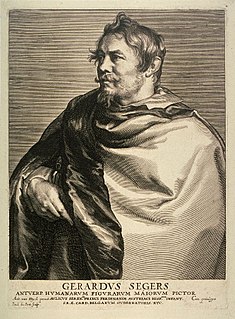Brabantian or Brabantish, also Brabantic or Brabantine, is a dialect group of the Dutch language. It is named after the historical Duchy of Brabant, part of the Duchy of Burgundy, which corresponded mainly to the Dutch provinces of North Brabant and southern Gelderland, the Belgian provinces of Antwerp and Flemish Brabant as well as the Brussels-Capital Region and the province of Walloon Brabant. Brabantian expands into small parts in the west of Limburg, and its strong influence on the Flemish dialects in East Flanders weakens toward the west. In a small area in the northwest of North Brabant (Willemstad), Hollandic is spoken. Conventionally, the South Guelderish dialects are distinguished from Brabantian but for objective reason other than geography.
East Flemish is a collective term for the two easternmost subdivisions of the so-called Flemish dialects, native to the southwest of the Dutch language area, which also include West Flemish. Their position between West Flemish and Brabantian has caused East Flemish dialects to be grouped with the latter as well. They are spoken mainly in the province of East Flanders and a narrow strip in the southeast of West Flanders in Belgium and eastern Zeelandic Flanders in the Netherlands. Even though the dialects of the Dender area are often discussed together with the East Flemish dialects because of their location, the latter are actually South Brabantian.

Thomas Willeboirts Bosschaert was a Dutch-born Flemish Baroque painter.

The official language of the Netherlands is Dutch, spoken by almost all people in the Netherlands. Dutch is also spoken and official in Aruba, Bonaire, Belgium, Curaçao, Saba, Sint Maarten and Suriname. It is a West Germanic, Low Franconian language that originated in the Early Middle Ages and was standardised in the 16th century.

Hercules Pieterszoon Seghers or Segers was a Dutch painter and printmaker of the Dutch Golden Age. He was "the most inspired, experimental and original landscapist" of his period and an even more innovative printmaker.
Events from the year 1661 in art.

Daniël Seghers or Daniel Seghers was a Flemish Jesuit brother and painter who specialized in flower still lifes. He is particularly well known for his contributions to the genre of "flower garland" painting. His paintings were collected enthusiastically by aristocratic patrons and he had numerous followers and imitators.

Gerard Seghers was a Flemish painter, art collector and art dealer. After a period of study of study and residence in Rome, he returned to Flanders where he became one of the leading representatives of the Flemish Caravaggisti movement. In his later career he abandoned the Caravaggist style and genre motifs to become an important painter of large altarpieces for local churches.
Van Helmont is a Dutch and Flemish surname. It may refer to:
Segers is a Dutch patronymic surname. The mostly archaic Dutch given names Seger, Segher, Sieger and Zegher derive from Germanic Sigi- and -her, meaning "victorious lord". People with the surname Segers include
Zegers is a Dutch-language patronymic surname.
Van der Meulen or Vandermeulen is a Dutch toponymic or occupational surname, meaning "from the (wind/water) mill". The even more common surname Vermeulen is a contraction of this name. Less common variants are "Van der Molen", "Vandermolen", "Ter Meulen", "Termeulen", "Van Meulen" and just "Meulen".

Flemish (Vlaams) also called Flemish Dutch (Vlaams-Nederlands), Belgian Dutch, or Southern Dutch (Zuid-Nederlands), is a Lower Franconian / Dutch dialect. It is spoken in the whole northern region of Belgium as well as French Flanders and the Dutch Zeelandic Flanders by approximately 6.5 million people. The term is used in at least five ways. These are:
- as an indication of Dutch written and spoken in Flanders including the Dutch standard language as well as the non-standardized dialects, including intermediate languages between dialect and standard. Some linguists avoid the term Flemish in this context and prefer the designation Belgian-Dutch or South-Dutch.
- as a synonym for the so-called intermediate language in Flanders region, the Tussentaal.
- as an indication for the non-standardized dialects and regiolects of Flanders region.
- as an indication of the non-standardized dialects of only the former County of Flanders, ie the current provinces of West Flanders and East Flanders, Zeelandic Flanders and Frans-Vlaanderen.
- as an indication of the non-standardized West Flemish dialects of the province of West Flanders, the Dutch Zeelandic Flanders and French Frans-Vlaanderen.
Arend, Arent or Arendt is a Dutch masculine given name. Arend means "eagle" in Dutch, but the name derives from Arnoud/Arnout, which itself stems from the Germanic elements aran "eagle" and wald "rule, power". The form Arent also occurs in Norway. People with the name include:
Petrus is a Latin name derived from the Greek meaning "rock", and is the common English prefix "petro-" used to describe rock-based substances, like petros-oleum or "rock oil." As the source of Peter, it is a common name for people from antiquity through the medieval era. In the Netherlands and South Africa it remained a very common given name, though in daily life, many use less formal forms like Peter, Pierre, Piet and Pieter.

Zeeger Daniël Johan Wilhelm Gulden was a Dutch architect and member of the municipal council of Amsterdam for the Social Democratic Workers' Party.
Pepijn is the Dutch form of the masculine given name Pippin. Before the 1960s the name was rarely used in the Netherlands, but it has become quite popular since the turn of the century. As a patronymic surname it appears to be extinct in Belgium and the Netherlands. People with the name include:
Nelis is a Dutch masculine given name, a short form of the given name Cornelis, and a patronymic surname derived from it. Notable people with this name include:







